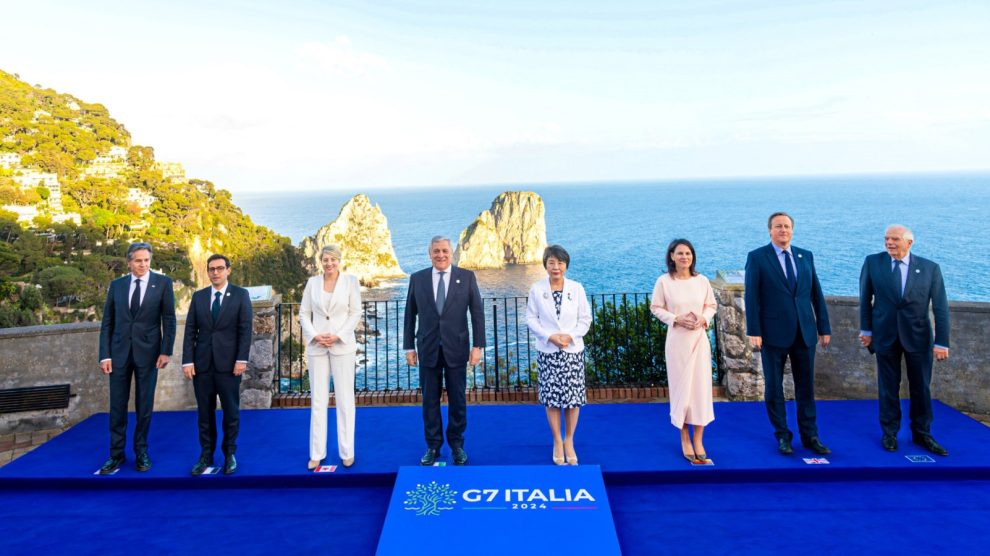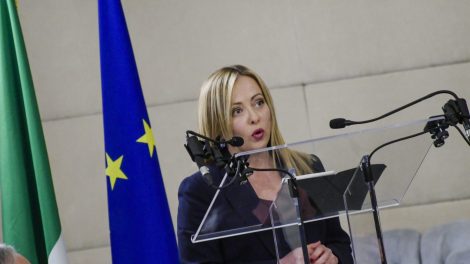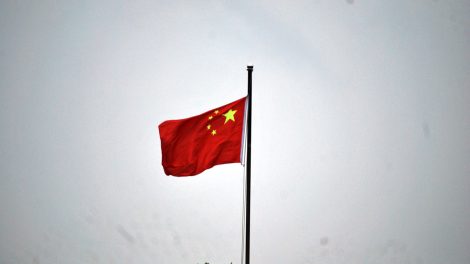Bring stability back to the Middle East. “In light of reports of strikes on April 19, we urge all parties to work to prevent further escalation. The G-7 will continue to work to this end,” states the Middle Eastern final communiqué of the three-day G-7 foreign affairs meeting that took place in Capri, steered by Italian Foreign Minister Antonio Tajani. “We call on all parties, both in the region and beyond, to offer their contribution to this effort.”
- The Seven called on Iran to refrain from supporting Hamas and from taking further actions that would destabilise the Middle East, including support for Hezbollah and other non-State actors.
- On top of that, they warned all countries against supplying components for Iranian drone and missile programmes.
- “We demand that Iran and its affiliated groups cease their attacks. We will hold the Iranian government accountable for its malicious and destabilising actions and we stand ready to adopt further sanctions or take other measures.”
Regional shockwaves. As the skirmish between Israel and Iran is inextricably linked to the ongoing conflict in the Gaza Strip, the second part of the document – having reiterated the G-7’s condemnation for the October 7 terrorist attack – zeroes in on the impending Israeli military operation in Rafah, which the Seven oppose, as it would have “catastrophic consequences on the civilian population.”
- G-7 ministers called on Hamas to release its hostages, both parties to reach a sustainable ceasefire to allow the bolstering of humanitarian assistance, and ultimately work towards the prospect of a two-State solution.
- They also condemned the Houthi’s continued threat against freedom of navigation in the Red Sea and reiterated their support for vessel defence missions, including the EU’s Operation Aspides and the US-led Operation Prosperity Guardian.
Back to Ukraine. Though overshadowed by the Middle Eastern developments, the urgency of sustaining Kyiv’s resistance against Moscow’s war of aggression was not lost on G-7 ministers. The Ukraine-focused final document reaffirms its “unwavering determination” to its defence, including through implementing “bilateral, long-term security commitments” that several G-7 countries have already signed.
- The Seven are committed to answering Ukraine’s calls to supply air defence systems and will “work with partners towards this end.” The document name-checks the Immediate Action for Air Defense Initiative proposed by Germany, which has recently moved to provide Patriot missile defence systems.
- “We will do everything possible for the air protection of Ukraine, let’s see what can be done,” said Italian FM Tajani at a press conference.
Financing reconstruction. The other central issue is how and whether to use frozen Russian funds to finance Ukraine’s reconstruction. G-7 ministers vowed to keep them immobilised “until Russia ceases its aggression and pays for the damage it has caused” and to continue exploring “all possible avenues to aid Ukraine in obtaining compensation from Russia.
- The aim is to arrive at June’s G-7 Summit in Apulia with feasible options to use said assets, or their earnings, to support Ukraine, in a manner that’s “consistent with our respective legal systems and international law.
Stability is global. The third document, which addresses more general global challenges, builds on the second’s words on North Korea’s illegal arms supplies to Russia and Chinese businesses providing it with dual-use materials and weapons components. “China should ensure that this support stops, as it will only prolong this illegal war of aggression in violation of the UN Charter and increase the threat that Russia poses to its neighbours,” reads the text.
- Africa features prominently in this text, which highlights the G-7’s commitment to supporting its development and thus addressing the root causes of irregular migration. Ministers vowed to bolster their partnership with local entities, including the African Union, and applauded its participation in the G-20.
- The communiqué also hinges on promoting a free and open Indo-Pacific, another “key engine for global growth,” including through deeper engagement with partners in the region. Ministers stressed that their economic security policies are not designed to hurt China (which they see as an important partner for development) but rather protect their countries from the threats of oversupply and non-market practices.




